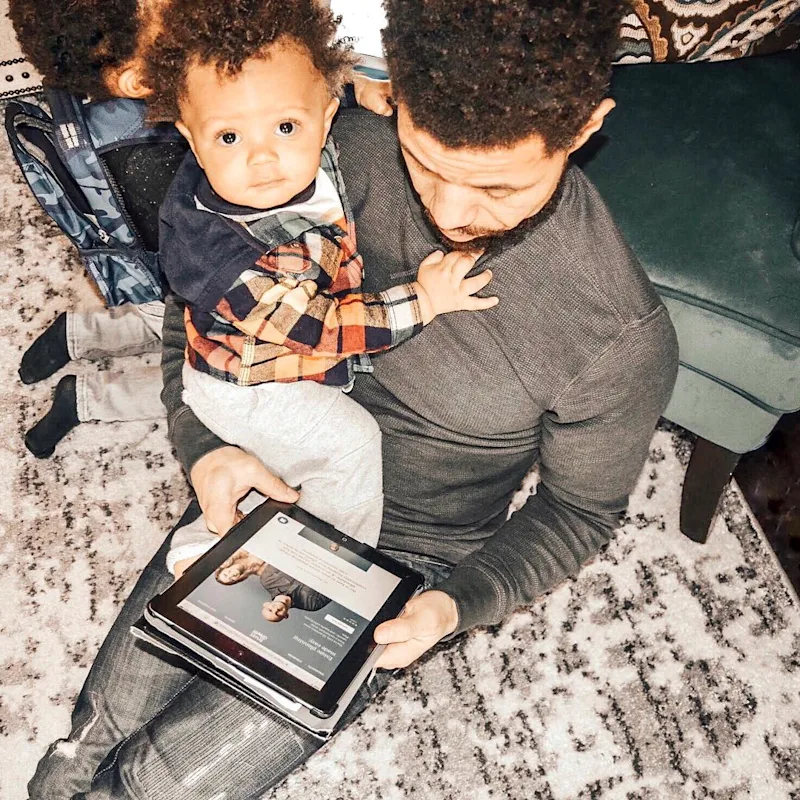
How to Become an Organ Donor - Pros & Cons and How to Start the Process
Becoming an organ donor is an important decision that could ultimately save someone's life someday. Use our guide to educate yourself on the process.

By Staff Writer
Trust & Will
Becoming an organ donor is one of the most selfless acts you can do in life. It’s a form of generosity that often continues even when you’re no longer here. Organ donors have the opportunity to give countless others a new lease on life, oftentimes when recipients have run out of other options. When you make the decision to become an organ donor, you may just unknowingly become the hero someone you’ve never even met has been searching for.
You might find it’s difficult to make a decision about becoming an organ donor, and that’s OK. It’s even common. But understanding more about the process and requirements might be all you need to decide. Learn everything there is to know about being an organ donor, from how to become an organ donor, to what the requirements are, to how to sign up, to what this all means for your Estate Plan and how it falls into the overall healthcare process...we’re covering it all.
When Do I Decide to Be an Organ Donor?
Sometimes in life, the most important decisions you make are the ones you struggle with the most. This can be true when you’re deciding if you should sign up to become an organ donor. Even though it can be hard, making this decision is so important - in fact, it falls right up there with all the other choices you should be making about your healthcare decisions.
Because if you don’t act, if you don’t make your wishes known, and most importantly, if you don’t legally establish those wishes, using the proper paperwork and legal tools available to you, you could be leaving all those decisions up to the courts. Worse yet, you could be leaving a painfully excruciating task for your loved ones, who may suddenly be faced with literally making life and death decisions on your behalf, never truly knowing what you actually would have wanted.
Looking for more information about typical healthcare documents you should be aware of? Check out some of our other articles on the topic:
Becoming an Organ Donor: Pros & Cons
Any time you have a tough decision to make in life, weighing the pros and cons can usually help you feel better about whatever decision you ultimately come to. Understanding the benefits and drawbacks to any major life decision can be a great way to come to a conclusion, and beyond that, it can allow you to be at peace with what you decide.
PROS: There are many positive aspects to being an organ donor.
Opportunity to save a life. Or several lives.
Comfort for your family. Once someone has passed away, families often report feeling an incredible sense of peace, knowing their loved one so selflessly contributed to the well-being of others.
You don’t need to be an exact match. Blood and tissue types are generally more important than the preconceived notion of “you must be a perfect match.”
Opportunity to help advance research. Donating your body to science for medical research, particularly if you have a rare disease, may allow for treatments or cures to be developed.
Assist in the training of the future medical community. Your incredible donation means students can practice their technique and conduct research that will enhance their skill and know how.
CONS: Of course, there are drawbacks to every decision we make in life.
Donors will be kept on life-support. Until organs can be removed, donors may be kept on life-support, which can be painful for family members.
Those closest to us may be uncomfortable. Losing a loved one is difficult under any circumstance, and the thought of our organs being donated can be an extremely tough process for some people to come to terms with.
Living donation is major surgery. If you’re considering donating an organ for a transplant, you should know that it’s major surgery, with the potential for serious risk.
Living donation can also result in a painful and lengthy recovery time. You should also be aware that you may have scars as a result.
Insurance doesn’t always cover complications. Complications that result from transplant procedures if you’re donating an organ may not be covered by your insurance.
Ultimately, organ donation is an extremely personal decision. There’s no right or wrong, there’s no good or bad. You have to do what feels right to you, and that should be the guiding factor when you are deciding.
What Are the Requirements to Be an Organ Donor?
If you’re considering being an organ donor, keep in mind that there are very specific requirements that need to be met. Meeting the following requirements will ensure you’ve done everything you need in order to become a donor after you pass away.
You’re over the age of 18
You do not have active cancer
You do not have a systemic infection
NOTE: If you’re under the age of 18 and you wish to be a donor, depending on state law, you might still be able to do so. Your family would have to give their blessing if you pass away before you’re 18 though.
How to Become an Organ Donor - Step-by-Step Guide
After you actually make the decision to become an organ donor, you can follow our step-by-step guide on how to go through the process.
Step 1. Decide whether or not you want to become an organ donor
After you’ve weighed the pros and cons, it’s time to make the decision about becoming an organ donor. If you’ve always known one way or the other, that’s fine too. Some people know from a very young age, without putting too much thought into the decision at all, that they either do, or do not, want to be an organ donor.
Step 2. Update your Driver’s License to indicate organ donor status
You can easily update your Driver’s License to reflect your status as an organ donor. This will be hugely beneficial in the event you’re ever in an accident and cannot give your consent. Your information will be printed on your license, and forwarded to your individual state’s registry.
Step 3. Register as an organ donor
Even if you go through the process when you’re getting your license, it’s still important to register with your state’s organ donor registry. This way, there are no questions or misunderstandings should the time come when your family is asked for consent. Registering alleviates a lot of stress on your loved ones, who won’t have to struggle with making a decision.
Step 4. Sign and carry a donor card
Signing and carrying a donor card with you is one more way emergency workers can determine whether or not you’re a donor. Occasionally, different routes of healthcare will be taken depending on whether or not you intend to donate your organs.
Step 5. Update your healthcare documents to include your organ donor status
Don’t forget to update your healthcare documents. Your Advanced Healthcare Directive (also known as a Living Will), should explicitly state your wishes to be an organ donor. Once again, clearing up any potential misunderstandings before they happen can be critical in terms of timing when it comes to harvesting usable organs.
Trust & Will makes it easy to create and update healthcare documents in your Estate Plan at any time. With just the click of a button, you can either establish your healthcare directives, or update existing documents. There’s no better time than today to make sure your wishes regarding organ donation are known.
Being an organ donor is truly one of the greatest gifts you can offer. Whether you’re donating to a friend or loved one who needs a transplant, or you want to do good in this world even after you’re no longer here, becoming an organ donor can be a part of the legacy you one day leave behind.
Last updated: March 21, 2025



